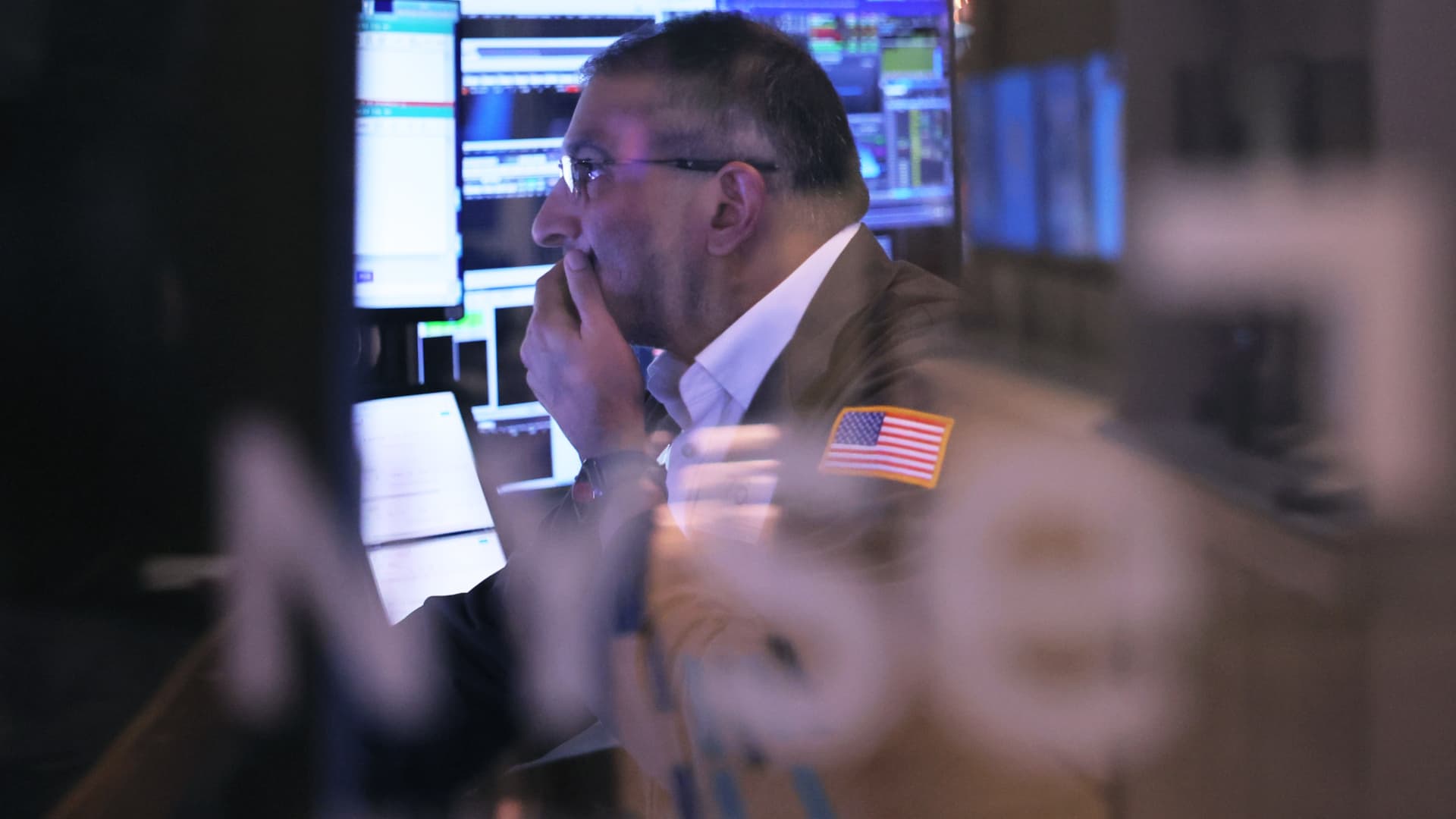Dow closes 100 points higher, S&P 500 and Nasdaq notch best week since November

Stocks rose Friday as investors digested bank earnings and bet inflation would ease in 2023.
All of the major indexes fought their way into the green after beginning the day deep in the red.The Dow Jones Industrial Average rose 112.77 points, or 0.33%, to 34,302.74. The S&P 500 rose 0.4% to 3,999.08, and the Nasdaq Composite advanced 0.71% to 11,079.16.
The S&P and Nasdaq each posted their second consecutive up week and best weekly performance since November. The tech-heavy Nasdaq was the outperformer for the week after rising 4.82%. The S&P advanced 2.67%, and the Dow added 2%.
Bank earnings weighed on equities to start the day, but sentiment reversed as investors appeared to shrug off negative news that was expected anyway to some degree, according to Ross Mayfield, investment strategy analyst at Baird.
“Financials weren’t really quite expected to have a blockbuster quarter,” he said. “It’s just providing a bit of a sentiment wave, and since the banks lead earnings season they can kind of set the tone for how investors look at the broader picture.”
“Frankly, the market has rallied pretty nicely over the last few weeks, absent a catalyst, and so there might be a little bit of profit taking out of earnings season going,” Mayfield added.
Wells Fargo, whose profits for the last quarter had been cut by half, said it’s preparing for the economy to “get worse than it’s been over the last few quarters.”
JPMorgan Chase posted revenue that beat expectations, but even so, the bank warned it’s setting aside more money to cover credit losses because a “mild recession” is its “central case.” The bank posted a $2.3 billion provision for credit losses in the quarter, a 49% increase from the third quarter.
The CEOs of Citigroup and Bank of America also said they’re anticipating a “mild recession.”
Elsewhere, Delta Air Lines reported earnings and revenue that beat estimates for the final quarter of 2022. However, the stock slid about 4%. Investors have been awaiting these results to gain more insight into the health of the economy.
In economic data, the University of Michigan consumer sentiment survey showed the one-year inflation outlook down to 4%, the third straight monthly decrease and the lowest level since April 2021.
That followed December’s CPI report, released Thursday, which showed prices declined 0.1% over November. While prices rose at a 6.5% pace compared to the previous year, the results heightened hopes that the Federal Reserve may soon slow its hiking.









